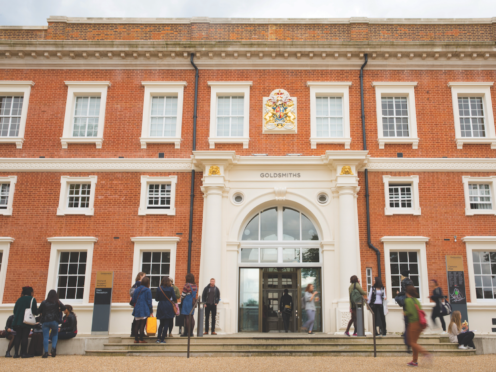The £10,000 Goldsmiths’ Prize for experimental fiction will be open to all nationalities for a “broader and richer” range of literary voices.
Established in 2013, the Goldsmiths’ Prize rewards fiction that is “genuinely novel and embodies the spirit of invention”.
The cash prize was previously only available to writers born in the UK or Republic Of Ireland, but has now been opened up to authors of all nationalities.
It follows similar rule changes to the Man Booker Prize, which broadened entries to all English language works in 2014. Anyone who has been in the UK or the Republic of Ireland for a minimum of three years can now enter.
Sponsored by Goldsmiths’ of the University Of London, the prize seeks to celebrate more bold and experimental works, in the tradition of the artistic college.
Maura Dooley, professor at Goldsmiths’ and chair of the judges for the prize, said: “I’m looking forward to the excitement that mounts from the moment these new novels begin to arrive at Goldsmiths and this year the door is open wider.
“New rules allow for submissions not just from authors who are UK or Irish citizens but also from authors resident in these islands in recent years.
“In this way, the range of writing and voices will be broader and richer than ever. I am thrilled to be chairing the panel of judges.”
The #GoldsmithsPrize2019 is coming! We'll be revealing our panel of judges next Wednesday and opening for submissions on Friday 25 January. pic.twitter.com/cDCJf4F2oG
— The Goldsmiths Prize (@GoldsmithsPrize) January 16, 2019
Video journalist and previous Goldsmiths’ Prize nominee Guy Gunaratne, New Statesman deputy culture editor Anna Leszkiewicz, and Icelandic poet, novelist and Academy Award-nominated lyricist Sjon will judge this year’s prize. The award is run in association with the New Statesman.
Deputy editor Tom Gatti said: “The Goldsmiths’ Prize has worked wonders in bringing ambitious, challenging fiction back into the public eye. The New Statesman is delighted to continue our partnership.”
The first winner in 2013 Eimear McBride for A Girl Is A Half-formed Thing. Last year, Robin Robertson claimed the £10,000 prize for his noir novel in verse, The Long Take.
Submissions are open from January 25 to March 29. The winner is announced on November 13.
